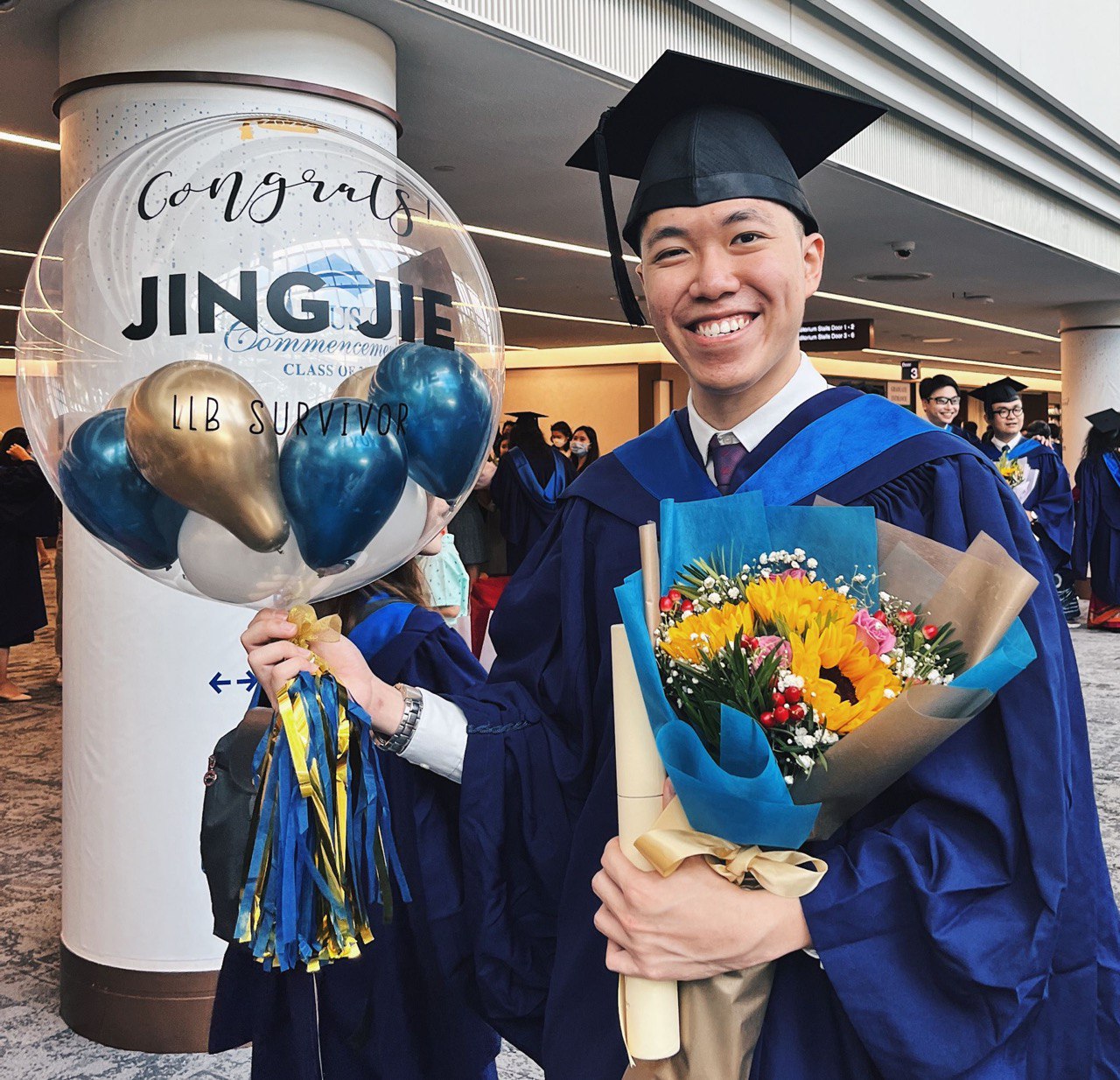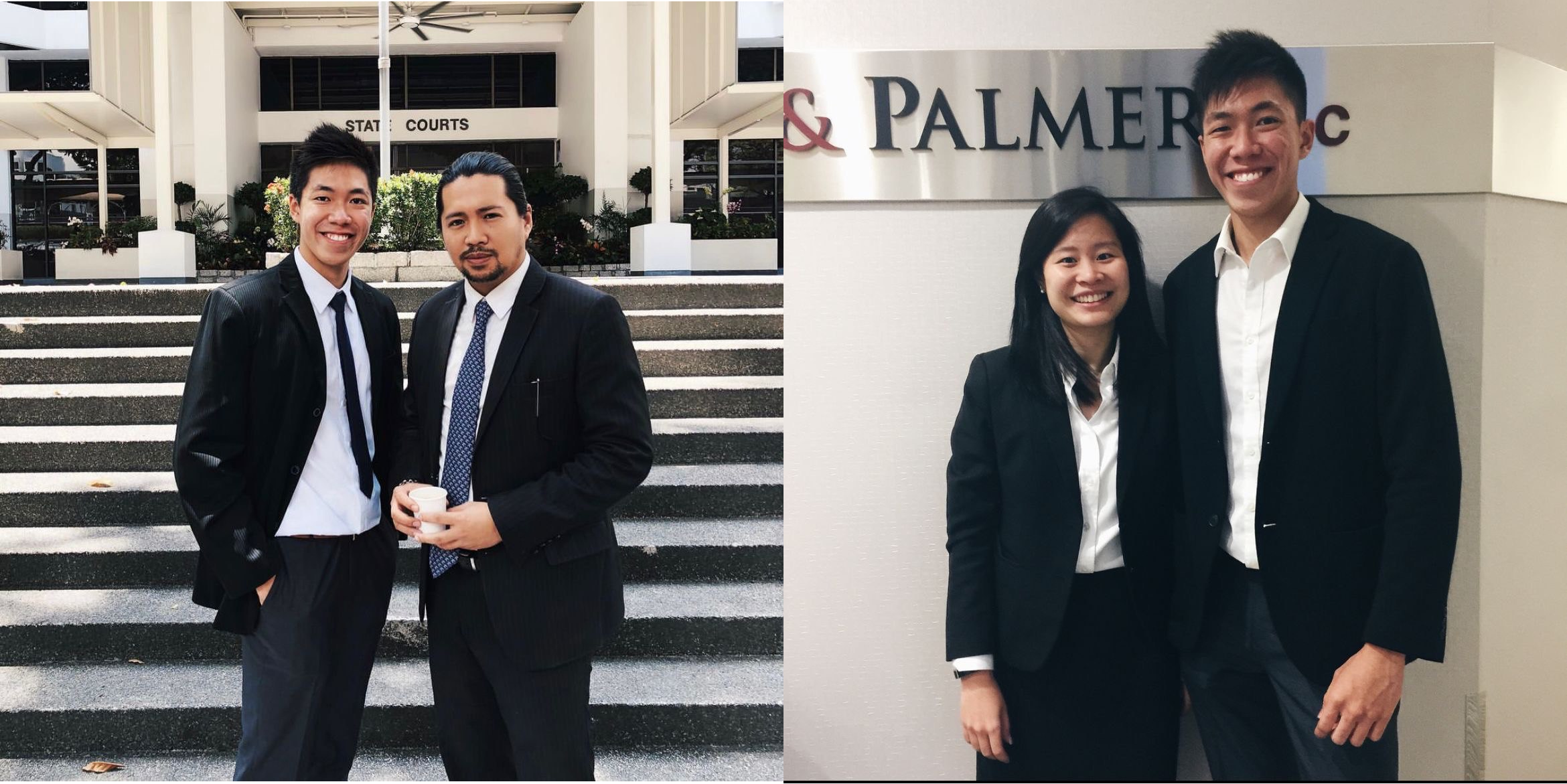THE ART OF JUGGLING WITH LOH JING JIE
Tomorrow’s lawyers have passions that extend beyond the law, as this fresh graduate proves.

BY ASHUTOSH RAVIKRISHNAN
Commencement season is upon us, with hundreds of graduates celebrating the end of their law school journeys. But the term “commencement” might be a tad misleading—after all, many of today’s students already commence their legal careers well before graduation.
Take Mr Loh Jing Jie, for example. He, like many of his peers, had a string of internships throughout his time in law school, most recently at ByteDance, parent company of social media behemoth TikTok. The world of media contracts and privacy regulations was a far cry from the kind of law that Jing Jie was initially set on.
Even before starting law school, he interned at Invictus Law, where he was mentored by Mr Josephus Tan and Mr Cory Wong. Later, he read about the late Mr Subhas Anandan and decided to intern at Quahe Woo & Palmer’s criminal law department under Mr Sunil Sudheesan and Ms Diana Ngiam.

Jing Jie with Mr Josephus Tan (left) and Ms Diana Ngiam (right)
That experience deepened his interest in criminal and constitutional law, sparking future attachments at the Criminal Legal Aid Scheme and Peter Low & Choo, where he learnt from the likes of Mr Ng Shi Yang, Ms Sadhana Rai and Mr Remy Choo Zheng Xi.
Although grateful for these experiences, Jing Jie eventually decided not to pursue criminal law. “It was very emotionally draining,” he recalls, describing the experience of having to assist defence counsels in taking instructions from accused persons on remand at Changi prison, drafting their mitigation pleas or representations to the Attorney-General Chambers, preparing for trials and then explaining the grounds of decision to their loved ones. While he may not be defending accused persons anytime soon, he remains passionate about their rehabilitation and volunteers with Architects of Life a social enterprise that aims to unlock the potential of ex-offenders.
This penchant for drawing out people’s stories led him to join the editorial team of Letters of the Law, which invites members of the profession to write letters to their younger selves. Being privy to their stories has reframed Jing Jie’s approach to his career. “I’ve realised how important it is to remain passionate and steadfast about the cause that you are fighting for amidst your other responsibilities as a junior lawyer in the future,” he says, referring to his work with Architects of Life, Letters of the Law, NUS Alumni Ventures and his tuition business.
“So when I was looking for a training contract, I looked out for firms that would provide me with the synergy and space to pursue these external commitments outside the law.” I wonder how he articulated this desire to potential firms, seeing that at that stage, employers traditionally hold far more power. “It depends on what you’re willing to give up. I was willing to sacrifice my social life and personal time to pursue my passion projects on the side. Of course, you don’t go up to a potential employer and say that you want all your weekends to yourself—and when you’re trusted to work on a file, you do it to the best of your ability. But every firm has a different working style and I think you can find out whether there’s a fit for you while remaining humble and grateful for the opportunity.”
For Jing Jie, a firm’s culture also extends to its trust in trainees and the attention given to their development. I think as trainees, we can be entrusted with some autonomy in managing files, negotiating with opposing counsel and taking instructions from clients. So I was clear that I didn’t want to train at a firm where that amount of exposure and opportunity to hone client management and negotiation skills is limited.” He eventually settled on Aquinas Law and will start at the medium size boutique law firm, headed by Mr Aloysius Wee and Mr Lim Kok Meng, next January.
As we wrap up our conversation, I casually ask him what he’s willing to give up to juggle his many passions. He explains that he doesn’t have much “me” time anymore. “But I’m OK with that because I wholeheartedly enjoy what I do in all my other projects and that keeps me going. There must be life outside and beyond the law.”






